FILTRATION SYSTEM
3P HYDROSYSTEM 1.500
MULTIPLE PLANTS
For heavily used traffic areas.
For metal roof surfaces.
OVERVIEW HYDROSYSTEM / TECHNICAL DATA
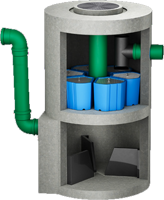
3P Hydrosystem 1.500
heavy traffic
FOR HEAVILY LOADED
TRAFFIC AREAS DTV > 15,000
Connectable area:
1,600 m²
Flow rate:
Q = 16 l/s
3P Hydrosystem 1.500
metal
FOR METAL ROOF SURFACES
(COPPER, ZINC, LEAD)
Connectable area:
1,300 m²
Flow rate:
Q = 13 l/s
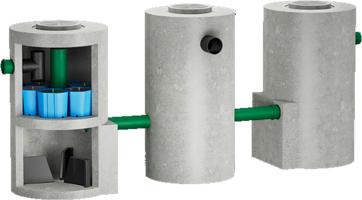
3P Hydrosystem 1.500 twins
heavy traffic
FOR HEAVILY LOADED
TRAFFIC AREAS DTV > 15,000
Connectable area:
3,200 m²
Flow rate:
Q = 32 l/s
3P Hydrosystem 1.500 zwilling
metal
FOR METAL ROOF SURFACES
(COPPER, ZINC, LEAD)
Connectable area:
2,600 m²
Flow rate:
Q = 26 l/s
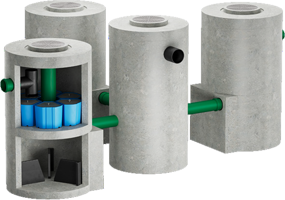
3P Hydrosystem 1.500 triplet
heavy traffic
FOR HEAVILY LOADED
TRAFFIC AREAS DTV > 15,000
Connectable area:
4,800 m²
Flow rate:
Q = 48 l/s
3P Hydrosystem 1.500 drilling
metal
FOR METAL ROOF SURFACES
(COPPER, ZINC, LEAD)
Connectable area:
3,900 m²
Flow rate:
Q = 39 l/s
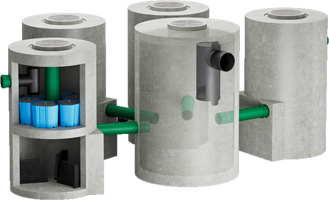
3P Hydrosystem 1.500 quadruplet
heavy traffic
FOR HEAVILY LOADED
TRAFFIC AREAS DTV > 15,000
Connectable area:
6,400 m²
Flow rate:
Q = 64 l/s
3P Hydrosystem 1.500 vierling
metal
FOR METAL ROOF SURFACES
(COPPER, ZINC, LEAD)
Connectable area:
5,200 m²
Flow rate:
Q = 52 l/s
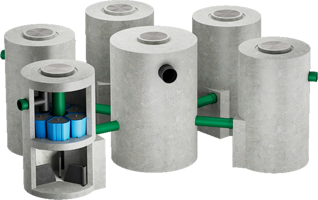
3P Hydrosystem 1.500 quintuplet
heavy traffic
FOR HEAVILY LOADED
TRAFFIC AREAS DTV > 15,000
Connectable area:
8,000 m²
Flow rate:
Q = 80 l/s
3P Hydrosystem 1.500 fivefling
metal
FOR METAL ROOF SURFACES
(COPPER, ZINC, LEAD)
Connectable area:
6,500 m²
Flow rate:
Q = 65 l/s
PLANNING CERTAINTY THROUGH APPROVALS
DIBT
APPROVAL
LFU METAL ROOF
APPROVAL
LANUV-LIST
NRW
VSA PERFORMANCE
AUDIT
EXTRACTION VIA
DWA-A 102
EXTRACTION VIA
DWA-M 153
EXTRACTION VIA
DWA-A 138
TENDER SPECIFICATIONS &
DRAWINGS
Request your
tender texts and
drawings!
PLANNING TOOLS
Individual, needs-oriented &
up-to-date information
BIM DATA
Building information modeling
(Building Information Modelling, BIM) for
the provision of 3D and 2D data,
tender texts and other
information for your construction projects.
YOU NEED PROFESSIONAL
SUPPORT OR
HAVE QUESTIONS FOR US?
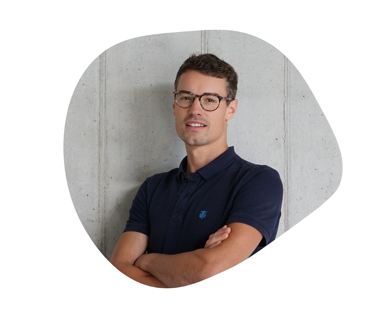
Jonas Bitterling, M. Eng.
Project Engineer
Tel +49 (0) 7334 92460-12
Mail bitterling@3ptechnik.de
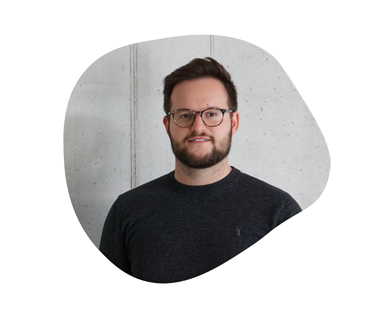
Daniel Betschner,
Master Professional of
Technical Management (CCI)
Project Engineer
Tel +49 (0) 7334 92460-32
Mail betschner@3ptechnik.de
REFERENZEN
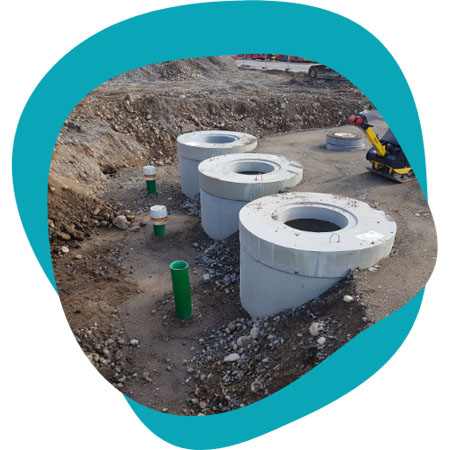
CITY OF FREIBURG
PUBLIC TRANSPORTATION
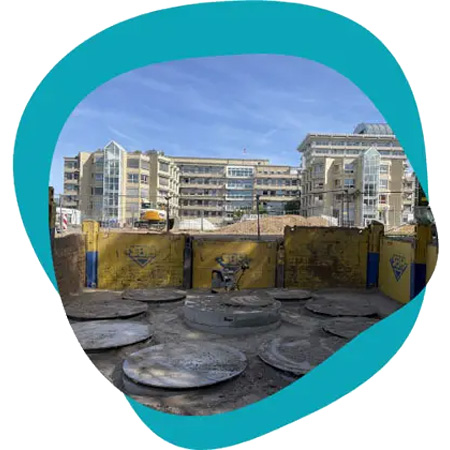
CITY OF FRANKFURT
HOSPITAL CAMPUS
FUNCTIONAL PRINCIPLE
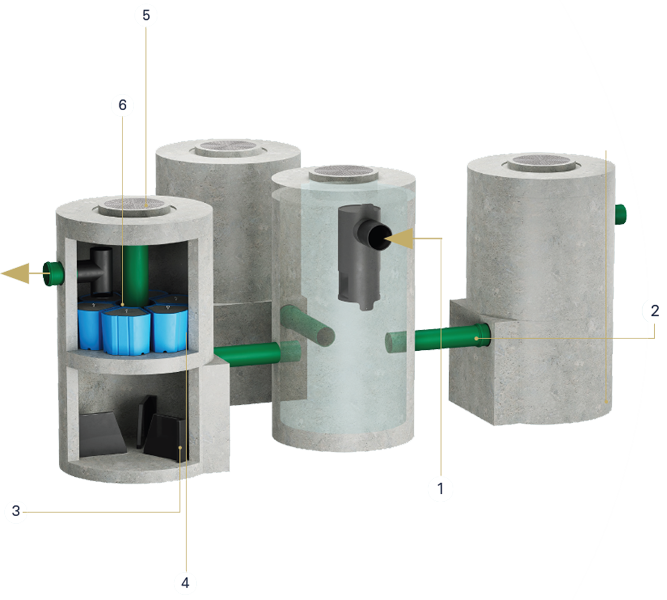
①
The precipitation water from the area to be drained is discharged into a distribution shaft. This ensures initial pre-sedimentation. The immersion pipe serves as an additional light material retention and ensures an even hydraulic balance.
②
The systems are then fed uniformly via the distribution shaft at the bottom of the shaft. The water is deflected tangentially by the deflection aid
③
These are collected in a sludge trap under the system via an opening in the lower part of the cleaning shaft
④
There are six filter elements in the middle of the cleaning shaft. These are used to filter the fines in an upflow process and a large proportion of the dissolved pollutants are precipitated and adsorbed. The filter can be backwashed from above and can be easily replaced if it becomes completely clogged.
⑤
The filter elements can be easily removed via the existing shaft opening.
⑥
The clean water is located above the filter elements, it passes through an oil barrier and then flows via the drain into, for example, a collection sump, infiltration or surface water.
HYDROSYSTEM 1.500
MULTIPLE PLANTS
POWERFUL IN COMBINATION
For larger connection areas, 2 to 5 Hydrosystems 1.500 can be combined in a star arrangement. The water is fed centrally via a distribution shaft, which already ensures pre-sedimentation and retains light substances.
All systems are fed evenly via the arrangement of the pipes. The hydrosystems are pre-assembled in the factory, meaning that the systems can be installed via “plug & play”.
FILTER VARIANTS
heavy traffic
For heavily used
traffic areas
metal
For metal roof surfaces
Combination of 2 to 5 Hydrosystem 1.500 units
(more units in combination, on request).
Enlargement of the connected areas up to fivefold.
Uniform feeding of all systems guaranteed.
Fewer operating points in practice.
Connectable area: 2,600 m² to 8,000 m².
Flexibly expandable.
